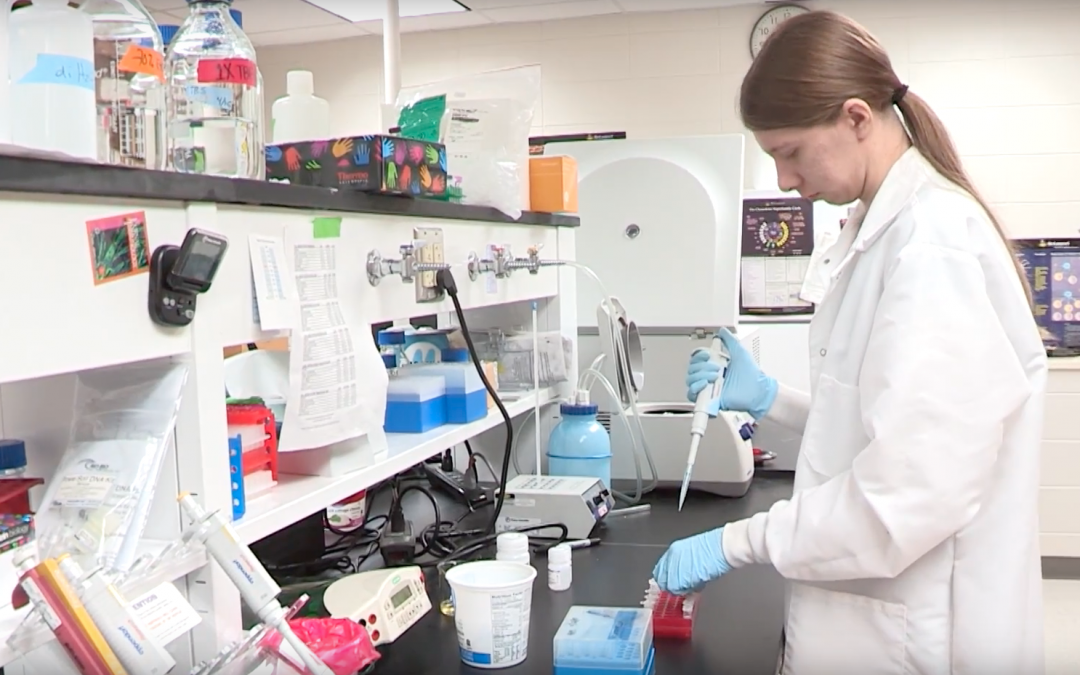University of Wisconsin Oshkosh biology graduate student Michelle Sonsalla, of Baraboo, is working on a project that could lead to a treatment for obesity in humans.
Through a research grant from the UW Oshkosh Office of Student Research and Creative Activity, Sonsalla has the opportunity to work with assistant professor Courtney Kurtz in her research on 13-lined ground squirrels.
In most current animal models for obesity, scientists feed laboratory animals a high-fat diet in order to induce weight gain. This method is problematic because a high-fat diet can result in unintended changes to an animal’s physiology that do not resemble natural weight gain.
However, since ground squirrels naturally gain weight every year to prepare for winter, they are a much better candidate for a model of obesity that does not require intervention in order to gain weight.
“They have a lot of pathways that push them in that direction and a lot of physiology that pushes them in that direction,” Kurtz said.
Since humans and 13-lined ground squirrels are both mammals, Sonsalla and Kurtz hope to draw conclusions about weight gain in humans from their research on squirrels.
“There are a lot of similarities between [humans and squirrels],” Sonsalla said. “That doesn’t say that all of the aspects of the development of obesity in 13-lined ground squirrels will apply to humans, but we’re hoping to just give a general overview of how obesity progresses and the basic timeline of events.”
Read more:

